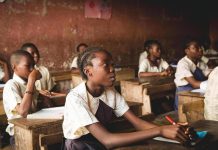Africa-Press – Angola. The engagement of the Ministry of Agriculture and Forestry in the revitalization and execution of the coffee cultivation program throughout the country and the creation of a biotechnology laboratory for coffee products marked the economic news in the week that ends today, Saturday.
The Minister of Agriculture and Forestry, Francisco de Assis, speaking on Thursday at the 1st Provincial Coffee Conference in Bengo, made it known that provinces such as Malanje, Cuanza Sul, Bié, Huambo and Huíla are making great progress in this sector , mainly with Arabica coffee
From an institutional point of view, he pointed out that the National Coffee Institute of Angola (INCA) is implementing a set of transformations to better support coffee growers.
When referring to experiences shared with some producing countries, he considered it imperative to resize farms, so that properties can be developed and spaces shared with workers who must be seen as collaborators and partners.
Still on this path, the government official revealed that Angola is working to create the first biotechnology laboratory for coffee.
He highlighted that with the installation of the aforementioned laboratory, with its technical and human capital capabilities, coffee farming in Angola will take a significant leap forward.
Relaunching coffee production and recovering the levels reached before independence (34 thousand 600 tons/year), in the Dembos Triangle area, at the time belonging to the neighboring province of Cuanza-Norte, was the main objective of the 1st Provincial Coffee Conference , which took place in Caxito, Bengo.
Historical data indicate that the municipalities of Nambuangongo, Bula Atumba, Pango Aluquém and Dembos (Kibaxe), which form the Dembos triangle, were the main productive areas before independence.
The provincial governor of Bengo, Maria Antónia Nelumba, said that the revitalization of coffee production in the province is based on institutional and financial support from banks, research and flow facilities.
“If we look at the Central Government’s guidelines towards diversifying the economy and sources of foreign exchange revenue, we have a vast highway of opportunities to make a difference”, he said.
Still on coffee, the National Coffee Institute (INCA) wants to collaborate with some universities in the country to obtain more knowledge about the culture of this product in Angola.
To this end, a memorandum of understanding has already been signed between the institution and several universities (without mentioning names) with the aim of promoting not only coffee consumption, but also matters related to production, reported in Caxito, Bengo province , the general director of INCA, Vasco Gonçalves.
The person responsible, who spoke about “Current status of coffee culture in Angola, opportunities and prospects”, said that Robusta coffee, produced in the provinces of Bengo, Uíge, Cuanza Norte and Zaire and Cuanza Sul, Cabinda represents 90 percent of production national.
Last week, it was also highlighted that the Angolan Executive will continue to support national producers, with a view to increasing the supply of goods, essentially food, to contribute to price stability in the country’s economy.
Speaking to the press, at the end of a visit to the fishing companies Rukka and Atlântico Foods, located in the municipality of Viana (Luanda), the Minister of State for Economic Coordination, José de Lima Massano, recognized the existence of enormous potential in the business sector to diversify the national economy, without necessarily creating new business segments, giving strength to companies that already operate in Angola.
It was also highlighted in the economic news that the Angolan Debt and Stock Exchange (BODIVA) was admitted, this month, as a member of the United Nations Global Compact, the largest corporate sustainability initiative in the world.
The Global Compact aims to align companies’ strategies with the 10 universal principles and the 17 Sustainable Development Goals (SDGs).
With the admission of BODIVA, Angola has 24 companies on this platform, which currently brings together more than 24,500 companies from different sectors, from 167 countries, as well as hundreds of NGOs, unions, official entities and UN agencies.
Among the principles, the pact obliges companies to support and respect the protection of human rights, defend freedom of association and the effective recognition of the right to collective bargaining, effectively abolish child labor, undertake initiatives to promote greater environmental responsibility and act against corruption, including extortion and bribery.
Also noteworthy in the week’s economic news was the visit of the President of Namibia, Nangolo Mbumba, on Tuesday, in Luanda, to the Sonangol Integrated Logistics Services Center (Sonils), where he learned about the operation of this infrastructure, which supports 65 percent of Angola’s global oil production.
On this visit, the Namibian Head of State, in addition to learning about the importance of this infrastructure for the oil industry, learned that 151 companies operated at the Sonils base, of which 40% were national, which move more than three thousand workers daily.
In brief statements to the press, the President of Namibia expressed that Angola has extensive experience in the oil sector and that Sonils’ “know-how” scientific knowledge should contribute, not only to the Angolan oil industry, but also to other African countries.
In turn, the Secretary of State for Oil and Gas, José Barroso, indicated that in 2022 Sonangol, for Angola, and Namcor Namport, for Namibia, signed a memorandum of understanding that aims to establish a logistics base, similar to Sonils in Republic of Namibia.
As part of the Namibian President’s visit to Angola, the governor of the National Bank of Angola (BNA) discussed cooperation with his Namibian counterpart.
BNA governor, Manuel Tiago Dias, said there are several initiatives from Angola and Namibia so that citizens of both countries can more easily use payment systems in commercial transactions.
Manuel Tiago Dias made these considerations to the press, at the end of a working meeting with the governor of the Bank of Namibia (BoN), Joahannes Gawaxab, who addressed cooperation between the two institutions, within the framework of the operationalization of the Memorandum of Understanding signed between the two central banks, in 2023.
According to the governor of the BNA, to date, technical work has been carried out at the level of central bank administrations, in which they have been guided in depth, as balance must be found and the interests of both parties must be taken into account. the parts.
In turn, the governor of the Bank of Namibia (BoN) highlighted the importance of the protocol, stressing that the gains do not only have to do with central banks, but also for businesspeople, as “the component that is being worked on it is about trade and finding mechanisms to facilitate and promote said activity”.
It was announced this week that the Institute for Asset Management and State Participation (IGAPE) will privatize, later this year, three projects allocated to the CIF, with a view to making them more profitable for the national economy and reducing burdens on the Government.
To this end, within 30 days (until mid-April), this entity will launch a public tender for private companies, with the financial, technical and technological capacity to manage these units, and with qualified human resources.
According to the head of IGAPE’s Privatization Department, Hortêncio Sanumbutue, among the units to be sold are the Bela brewery, a cement plant and logistics center, as well as the Zenza brand car factory.
It was also highlighted that the Angolan Government plans to finance, in four years (2024-2027), public and private investments of more than 2.489 billion kwanzas to implement the National Tourism Plan (PLANATUR).
Of the total credits to be made available, more than 276.89 billion are from projects under the direct management of the Ministry of Culture and Tourism, according to the general director of the National Institute for the Promotion of Tourism (INFORTUR), Afonso Vita.
The official recalled that PLANATUR defines the guiding principles for public investment in the sector, aiming to increase the amount of public investment and attract private investment to achieve public policy objectives.
It was also mentioned in the week’s economic news that the Angolan oil company Etu Energias plans, in the medium term, to meet 25 percent of the country’s lubricant consumption needs, with the installation of a manufacturing unit with capacity to produce more than 12 thousand tons. refined refined products metrics per year, in Angola.
The initiative, which is the result of a partnership between Etu Energias and the Malaysian company ‘Glide Tecnology’, aims to reduce import levels of petroleum derivatives in the country, which consumes around 40 thousand metric tons of refined products/year, according to the president of the Board of Directors of the Angolan oil company, Edson dos Santos.
The manager, who was speaking to the press during the launch of a line of lubricants produced in Malaysia, stated that the installation of the factory in the country will contribute to the availability of innovative and quality products, as well as increasingly dynamizing the market. national.
ANGOP
For More News And Analysis About Angola Follow Africa-Press






